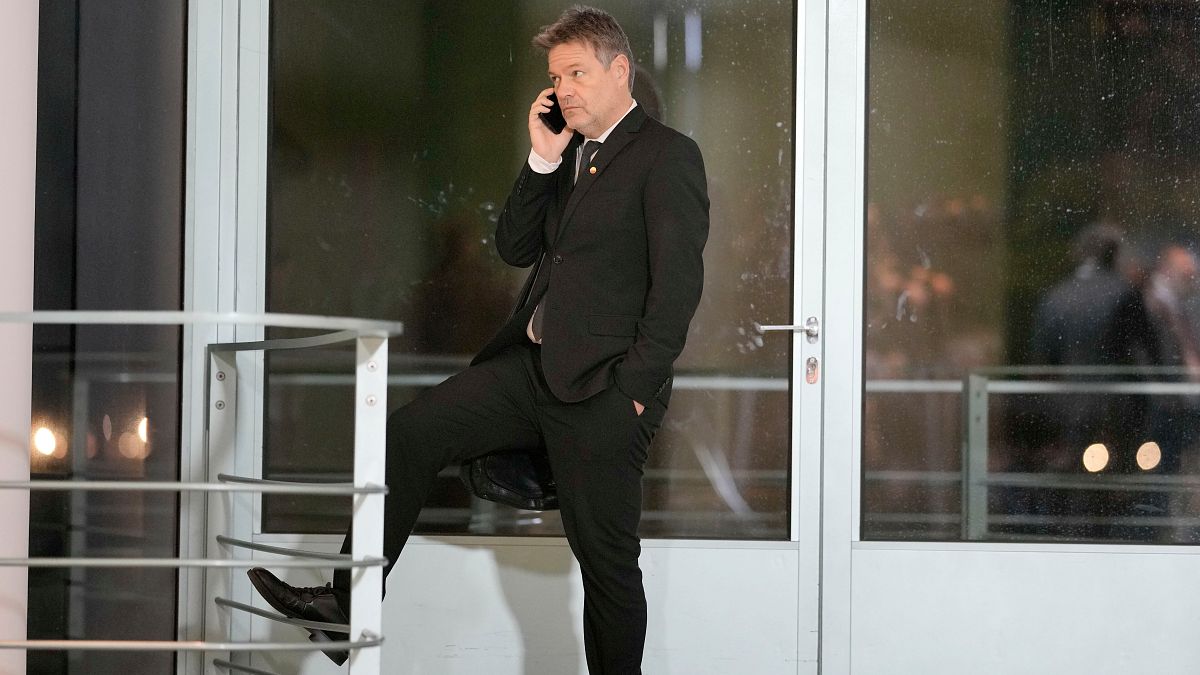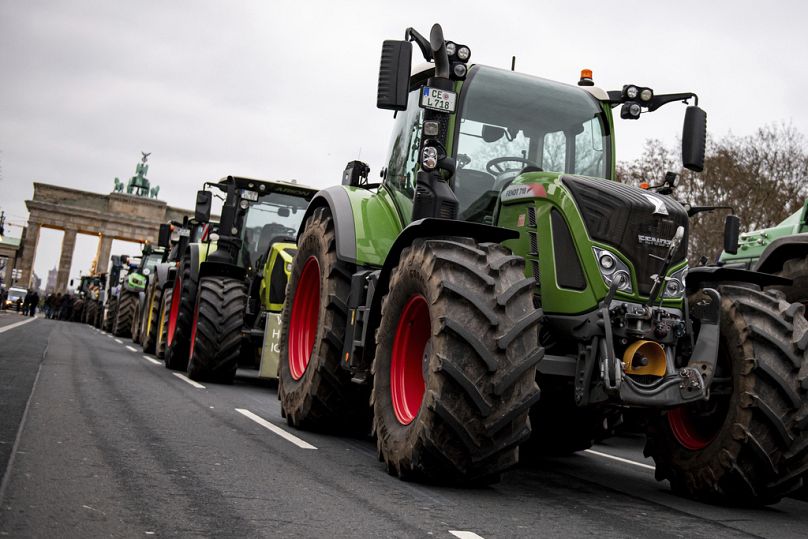An increasingly unpopular coalition government is facing demonstrations over plans to cut agricultural subsidies.
A group of farmers prevented Germany's vice chancellor from disembarking a ferry on Thursday evening, in a furious protest against government cost-saving plans that had infuriated the agricultural sector.
The demonstration, which came hours after the government partially climbed down, has drawn condemnation from both government and opposition figures.
Police said the farmers blocked a jetty in Schluettsiel on the North Sea coast Thursday evening, forcing Vice Chancellor Robert Habeck to return to the small island of Hooge, German news agency dpa reported.
They said Friday that Habeck, a member of the environmentalist Green party who is also economy and climate minister, reached the mainland on another ferry during the night.
More than 100 people took part in the blockade and pepper spray was used by the roughly 30 officers who were deployed, police said.
Chancellor OIaf Scholz's increasingly unpopular government angered farmers last month by announcing plans to cut agricultural subsidies as part of a package to fill a €17 billion hole in the 2024 budget.
Farmers staged a protest with tractors in Berlin and called for more demonstrations next week.
Germany's three-party coalition government has been struggling to win back the electorate's approval as it struggles to resolve a major budget crisis. Polling toward the end of last year showed that as many as two-thirds of Germans wanted a different government – and the Greens in particular appear to have suffered in recent months.
On Thursday, the government announced a partial about-turn on the subsidy cut, saying it would retain an exemption from car tax for farming vehicles and would stagger planned reductions in tax breaks for diesel used in agriculture.
The German Farmers Association quickly said the climbdown didn't go far enough. It said it was still demanding that both proposals be reversed and that it would stick to next week's planned protests.
Too far
Scholz's spokesperson, Steffen Hebestreit, wrote on social media platform X that the ferry blockade "is shameful and violates the rules" of democratic society.
"Violence against people or objects has no place in the political argument! This discredits the cause of many farmers who demonstrate peacefully," added Justice Minister Marco Buschmann.
"I share farmers' concerns, but this transgression is absolutely unacceptable," Hendrik Wüst, the governor of North Rhine-Westphalia state and a member of Germany's main conservative opposition bloc, wrote on X.
"It damages the farmers' justified cause and must have consequences."
The chairman of the German Farmers Association, Joachim Rukwied, said in a statement Friday that "blockades of this kind are a no-go."
"Personal attacks, abuse, threats, coercion or violence are just not right," he continued.
The budget revamp that included the disputed cuts was necessary after Germany's highest court annulled an earlier decision to redirect €60 billion originally meant to cushion the fallout from the COVID-19 pandemic toward combatting climate change and modernising the country.
The manoeuvre fell afoul of Germany's strict self-imposed limits on running up debt.

